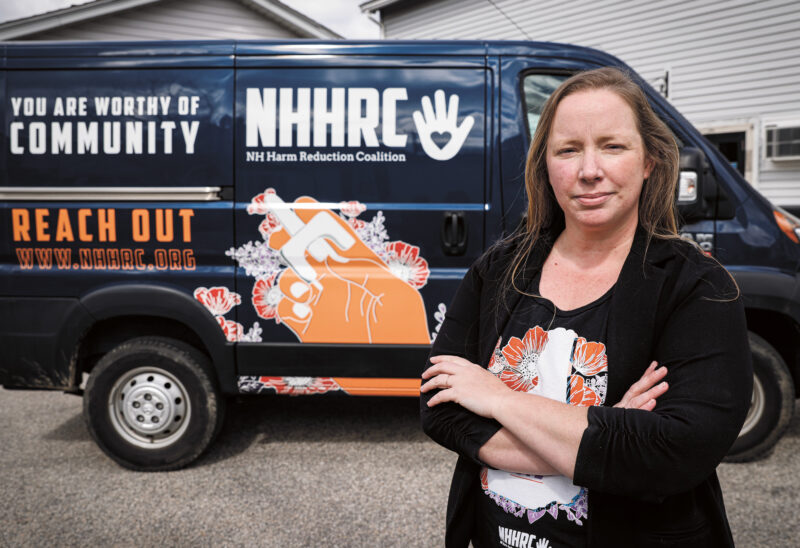Cora Hoppe couldn’t believe the news. The child care program she directs in Rochester, which serves hundreds of families and which suffered dramatic income and staffing losses during the pandemic, was receiving nearly $400,000 in federal refundable tax credits to make up for some of that shortfall.
“I screamed on the line,” said Hoppe, executive director of the Rochester Child Care Center. “I wanted to hug them all through Zoom.”
Early Learning New Hampshire, a statewide nonprofit that works with child care providers, helped Hoppe discover that her center qualified for funds available through a federal program to help businesses that had to shut down or reduce operations during the pandemic.
With so many centers still struggling in the aftermath of huge COVID-related challenges, Early Learning NH Executive Director Jackie Cowell said it is wonderful to be the bearer of good news.
“You feel like Ed McMahon, from Publishers Clearing House,” she said, referring to the joyous TV commercials spotlighting sweepstakes winners being surprised by a knock at their door. “You are at the door with the flowers and balloons.”
The refunds on already-paid payroll taxes are providing a breather for child care centers still facing staff shortages and budget shortfalls tied to the pandemic, which upended child care services throughout the state. Many centers closed for months and, with no income, struggled to retain their staff, pay bills and rehire as they gradually reopened. Some closed permanently.
A government program, the Employee Retention Credit (ERC), provides tax credits in the form of refunds for businesses that continued to pay employees — and the related payroll taxes — while shut down, or centers that saw significant declines in income. For-profit financial firms swamped child care centers and other employers with offers to secure desperately needed refunds, often for fees of 30 percent or more of the amount recovered.
At a conference in the fall of 2021, Christina D’Allesandro, director of early childhood and family supports at the Charitable Foundation, learned that a national consulting group, Civitas Strategies, was helping child care centers recover credits they were entitled to — at no cost to them.
With grant support from the Foundation, Early Learning NH collaborated with Civitas to help providers identify if they were eligible to recover funds and to file the necessary paperwork for a refund.
“We realized that a relatively modest grant could be applied to bring in an amount of money that would make a huge difference for New Hampshire child care providers,” D’Allesandro said. “These centers support our entire economy by supporting working families, and they took a huge hit during the pandemic.”
In less than a year, with approximately $50,000 in grants from the Foundation’s Community Crisis Action Fund, the project has helped child care centers in New Hampshire recover nearly $3 million, with more refunds expected.
“Without the refund, I probably would have closed,” said Donna Massucci, owner and executive director of BVS Family and Child Enrichment Center LLC. “I’m using it to catch up on bills and help out some families who fell behind on tuition until they catch up.”
After training from Civitas, Early Learning NH reached out to make child care centers aware of the ERC and help them apply for the tax credits based on a percentage of wages they paid to keep employees during the down times of the pandemic.
Initially, the plan was to inform centers about the credits and have them work with their own bookkeepers or accountants to complete an amended federal tax return. That process proved challenging for many overwhelmed providers who did not have the time or personnel to complete the paperwork or because their own payroll companies were charging too much.
“I would have probably let it fall aside,” without help from Early Learning NH, said Massucci. “Even with money on the line, you are short-staffed; you have two teachers out; you’ve got to be in a classroom to help out with children. When you come back to your desk at night, with all of these calls, emails and a pile of mail, you say ‘Yeah, I’ll do that tomorrow.’”
Hoppe said even her master’s degree in business didn’t help sort through the paperwork after long days of helping her depleted staff provide care.
“There was a night or two where I sat in my office and cried trying to go through my payroll stuff,” she said. “I wouldn’t have known where to begin if it wasn’t for this help.”
After learning that many providers faced similar challenges, Early Learning NH, in partnership with Civitas, began doing more of the “heavy lifting” — coaching providers, reviewing detailed wage information, calculating credits, drafting the proper forms, having Civitas confirm the information, then sending a completed package back to the providers to submit.
“Luckily we were able to bring them over the finish line with additional support,” Cowell said.
Through early June, more than 60 New Hampshire child care centers had recovered credits, some worth hundreds of thousands of dollars.
But, Cowell said 300-to-400 New Hampshire providers likely still are eligible for credits, but don’t yet know, together missing out on millions of federal dollars they deserve.
“It’s mainly smaller programs,” Cowell said. “Some do not have financial managers, some just don’t know about it. They should find out if they qualify.”
Using the initial grant support, Early Learning NH, with Civitas, developed the training and expertise to determine eligibility and help dozens of providers — and hopes to help more. There is some urgency, because the federal program ends at the end of 2023.
“One provider told us the amount they were getting was the amount they were operating in the red,” said Ben Clark, project innovation specialist at Early Learning NH. “It was going to allow them to continue to operate for the next year and a half.”
An outside, for-profit firm had offered to secure the refund for that center for a fee of 30 percent of the total, nearly $117,000.
“We did it for 400 dollars” in expenses, paid for by the Foundation grant, Clark said.
Massucci’s center, serving 117 children with 20 staff members, qualified for $18,000. Paying a third of that in fees would have been a big hit.
Faced with endless costly refund recovery offers, she was relieved that Early Learning NH, with its solid reputation of helping child care providers, coordinated the program.
“Having someone you can trust, you know they are going to bring this to you and do all of the work for you,” she said. “How great is that?”
In Rochester, Hoppe’s center employs 94 and serves 450-500 children at its child care center and through elementary school programs. It qualified for $389,000, providing relief as it rebuilds enrollment following COVID.
“If we didn’t have that credit, we were looking at close to a $750,000 deficit,” she said.



















